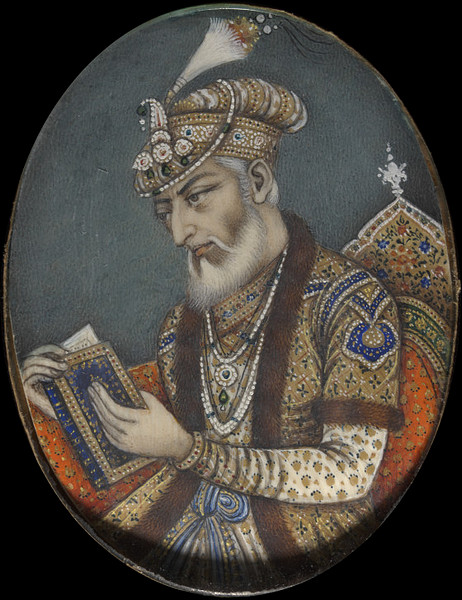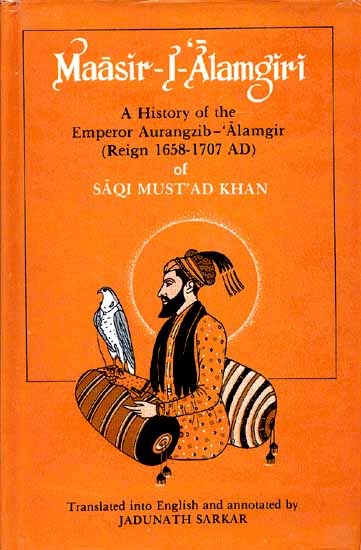Renaming Aurangzeb Road to Abdul Kalam Road
[This was contributed by Vinod Kumar, a US-based Mechanical Engineer and student of Islam and Hinduism.]
New Delhi Municipal Council’s (NDMC) renaming Aurangzeb Road after the late President A P J Abdul Kalam has sent the Muslim outfits and the political “liberals” of the secular brigade in a shock. How can this happen in a secular India? And then, what else can one expect from the government of a ‘communal’ BJP?
Let us review and comment on some of the reactions.
“Roads are a city’s arteries, and when they are given new names, the old lose their connect, and with it a part of history is lost”— commented one editorial.(The Hindu, Sept. 2) True, when a name is changed the old lose their connect. But, is it for the first time that a name of a road or even a city or state has been changed? Names of almost all the roads in the capital that were named after the British have been changed. It was not limited just to roads, even the hospitals, buildings, cities and other institutions did not escape the frenzy of changing names. Aren’t the British as much part of India’s history as the Mughals?

Aurangzeb
“The Bharatiya Janata Party has picked on Mughal emperor Aurangzeb to rewrite New Delhi’s history by renaming a road named after him” — continued the editorial.(The Hindu, Sept. 2) The blame for changing the name of Aurangzeb Road is put on the BJP. Firstly, AAP – the ruling party of NDMC with only three members of BJP out of seventy that voted for the name change unanimously — is hardly any lover of the BJP.
Secondly, changing the name of a road does not mean rewriting history. Did Congress rewrite history when the British names were changed? Had the Muslim rulers not done the same? Prayag is one of the holiest of places for the Hindus. Akbar changed its name to Ilahabad – later changed to Allahabad by the British. It is not the only town of India whose had been changed by the Muslim rulers. Did they ever ponder as to what thoughts go through a Hindu’s mind whenever he hears the name Allahabad in place of Prayag?
Dr. S Q R Ilyas, President of Welfare Party of India and All India Muslim Personal Law Board member,also general secretary of All India Muslim Majlis-e-Mushawarat (AIMMM) – an apex body of various organisations of the community, said “the Emperor was not “anti-Hindu” as is perceived but “a secular” personality.”(Hindustan Times, Aug. 31)
What Aurangzeb did was best summarized by Will Durant in his The Story of Civilization:
“Aurangzeb cared nothing for art, destroyed its “heathen” monuments with coarse bigotry, and fought, through a reign of half a century, to eradicate from India almost all religions but his own. He issued orders to the provincial governors, and to his other subordinates, to raze to the ground all the temples of either Hindus or Christians, to smash every idol, and to close every Hindu school. In one year (1679-80) sixty-six temples were broken to pieces in Amber alone, sixty-three at Chitor, one hundred and twenty-three at Udaipur; and over the site of a Benares temple especially sacred to the Hindus he built, in deliberate insult, a Mohammedan mosque.
He forbade all public worship of the Hindu faiths, and laid upon every unconverted Hindu a heavy capitation tax. As a result of his fanaticism, thousands of the temples which had represented or housed the art of India through a millennium were laid in ruins. We can never know, from looking at India today, what grandeur and beauty she once possessed.” (Vol 1, pp. 475)
As we will see this is not Will Durant’s flight of imagination to defame Aurangzeb.
Historian Sohail Hashmi, who conducts “Delhi Heritage Walks”, said, “The image of Aurangzeb as an enemy of Hindus was created by the British to divide Hindus and Muslims.”(The Hindu, August 30). Of course, it is very convenient to put the blame for all that the Muslim rulers did to Hindus on doorsteps of the British. Aurangzeb’s record of destruction of Hindu temples is not the creation of the British– it is all recorded in the history of Aurangzeb as written by his contemporary chroniclers.
Saki Musta’idd Khan – a constant follower of the Court for forty years and an eye witness of many of the transactions, in Ma-Asir I Alamgiri records that on the 17thZi-l kada, 1079 (18th April, 1669) “The “Director of the Faith” consequently issued orders to all governors of provinces to destroy with a willing hand the schools and temples of the infidels; and they were strictly enjoined to put an entire stop to the teaching and practicing of idolatrous form worship. On the 15thRab’u-l akhir it was reported to his religious Majesty, leader of the Unitarians, that, in obedience to order, the Government officers had destroyed the temple of Bishnath at Benares.”

Then in December 1669 – a few months later – the monarch “commanded the destruction of the Hindu temple of Mathura or Mattra, known by the name of Dehra Kesu Rai, and soon that stronghold of falsehood was levelled with the ground.” Ma-Asir I Alamgiri gives more details of the temples demolished by Aurangzeb. (The History of India as Told by its own Historians – vol. VII, pp. 184)
I wonder what the British had to do with this?
Some have contended that “Aurangzeb was no anti-Hindu fanatic. He destroyed Hindu temples when it suited him….” Bakhtawar Khan in his Mir-at-I Alam records “Hindu writers have been entirely excluded from holding public offices, and all worshiping places of the infidels and the great temples of these infamous people have been thrown down and destroyed in a manner which excites astonishment at the successful completion of so difficult a task.”
And he wrote: “All the mosques in the empire have are repaired at the public expense.”.(Ibid. pp. 159)
Aurangzeb re-imposed jiziya – the poll tax – lifted by Akbar on Hindu subjects. The order to destroy Hindu temples was not temple specific – it was applicable to all temples across his empire.
In Muntakhabu-l LubabKhafi Khan records an order was promulgated exempting the commercial goods of Musulmans from tax throughout the dominions of Hindustan. But, later on it was found that Muslims were passing the goods of Hindus in their name and thus the payment of zakat prescribed by the Law was avoided. So an order was given that, according to the Law, two and half percent should be taken from Musulmans and five percent from the Hindus. (Ibid. pp. 298)
Commenting on the life of Hindus under Aurangzeb, Sir Jadunath Sarkar (History of Aurangzeb) writes, “Heaven and earth alike were closed to him as long as he remained a Hindu. Hence, the effect of Aurangzeb’s reign was not only to goad the Hindus into constant revolt and disturbances, but also to make them deteriorate in intellect, organization, and economic resources, and thereby weaken the State of which they formed more than two- thirds.” (Vol. 5, pp.371)
[contextly_sidebar id=”6VCsTD6zjp7U7bR3DF10qokr6WHe50mx”]
Facts cited above are just a little glimpse into what Aurangzeb’s policies vis-à-vis his Hindu subjects were. But the sad part is that Muslims of today have never expressed any remorse about it. The past cannot be changed but we can always express our sorrow and condemn the such behavior and take steps so that it is not repeated again.
Given Aurangzeb’s treatment of his majority subjects, I see no reason to perpetuate his memory in public sphere in a secular country.It is not a move against Muslims or Islam. Keeping with the secular nature of India’s polity, the name of a communal Muslim monarch has been replaced by a committed secular Muslim President of the country. Renaming Aurangzeb Road is not an exercise in rewriting history. Like the British, Aurangzeb will always be an integral part of Indian history – nothing can ever change that – but not someone to be cherished and idolized.

